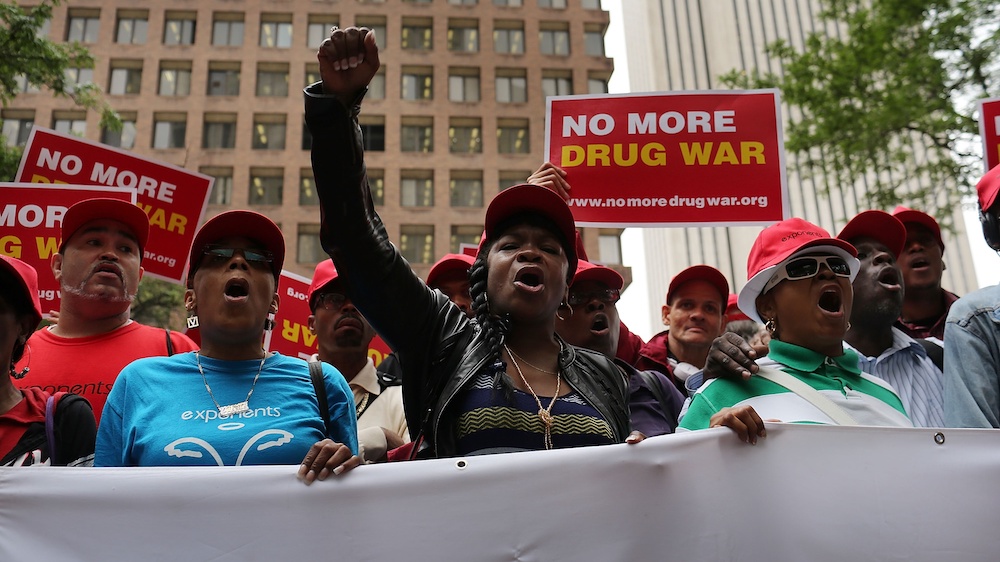If you’re interested in sharing your opinion on any cultural, political or personal topic, create an account here and check out our how-to post to learn more.
____
This summer the nation witnessed and participated in the greatest mass movement of our history. Millions marched through the streets of every major American city. Each of the nearly 550 protests rejected the lynchings of George Floyd, Breonna Taylor and countless others.
Demonstrators demanded an end to state-sanctioned violence against Black and Latinx communities. Dismantling the failed War on Drugs is a vital part of this equation, with marijuana reform being a modest but impactful step. Demands and legislative actions must be as comprehensive as the decades of harm has been for millions of people impacted by the criminal legal system and policies that rest solely on punishment and stigma.
Congress has a historic opportunity to pass the Marijuana Opportunity Reinvestment & Expungement (MORE) Act (H.R. 3884), a bipartisan bill that will simultaneously address a significant factor in the mass criminalization of Black and Latinx communities and stimulate a COVID-19-devastated economy.
Appreciating the United States’ history of drug criminalization is core to understanding why we demand systemic changes to policing and incarceration. The war on drugs has facilitated racially biased policing and police militarization. These practices have shattered the social and economic fabrics of low-income communities and communities of color. Marijuana prohibition laws result in over 600,000 arrests annually and tear apart the lives of millions of individuals and families — disproportionately devastating Black and Latinx people. In addition to the long-lasting trauma of family separation, a criminal record and the thousands of collateral consequences of convictions affects individuals’ ability to find work, secure housing, and provide for their families.
By ending federal criminalization of marijuana and allowing states to regulate marijuana without fear of federal interference, the MORE Act will reduce the wrongful over-policing of people of color and begin to tackle mass incarceration. The bill will also provide a community reinvestment fund, answering the calls in support of building community-centered support systems.
The MORE Act is the most comprehensive piece of legislation addressing marijuana justice ever considered in Congress. It sets up expungement and resentencing for federal marijuana offenses. It protects people from being denied public benefits like nutrition assistance because of marijuana use or a previous marijuana conviction. We needed the MORE Act even before COVID-19 wreaked havoc on our nation and the world. Now, there is even more urgency as the economic hardships caused by the drug war are compounded by the impacts of this unprecedented global pandemic. Especially during a time of such strong party polarization, it is imperative to capitalize on bills with bipartisan support.
According to a recent poll by the Justice Collaborative Institute, 58% of likely voters, including 54% of Republicans, think that the federal government should legalize the use and sale of marijuana. When told about the specifics of the MORE Act, support increased to 60% amongst Republican voters.
Due to marijuana convictions and financial barriers, less than one percent of the estimated billion-dollar marijuana industry is currently owned or operated by people of color. While the failed war on drugs exacerbates our economic crisis, the MORE Act will stimulate economic recovery. A legalized marijuana industry will generate hundreds of thousands of new jobs and millions of dollars in revenue. It will allow existing state marijuana regulatory programs to flourish and empower communities to recover from the national recession.
In the current economic climate, access to banking is a necessity. With the passage of the MORE Act, the marijuana industry will be able to have a normal banking relationship and be able to accept debit and credit cards, lifting the industry up to current standards, especially during a time when cashless businesses are vital for safety in the wake of COVID-19. Furthermore, the MORE Act includes funds and incentives to states that will help ensure increased access of Black and Latinx entrepreneurs and entrepreneurs impacted by marijuana criminalization have access to the legal marijuana marketplace.
We must take every possible action to stimulate the economy and reduce arrests and incarceration. Further, we must fight to actualize the truth that drug use should be treated as a public health issue, not a criminal one.
The time for bold leadership is now. Ending federal marijuana prohibition through a racial and economic justice lens is one significant opportunity to deliver on calls for justice and reform. Supporting the MORE Act is justice — I call on other Congressional leaders and Members of Congress to support this vital legislation and swiftly advance it to the floor for a vote.
